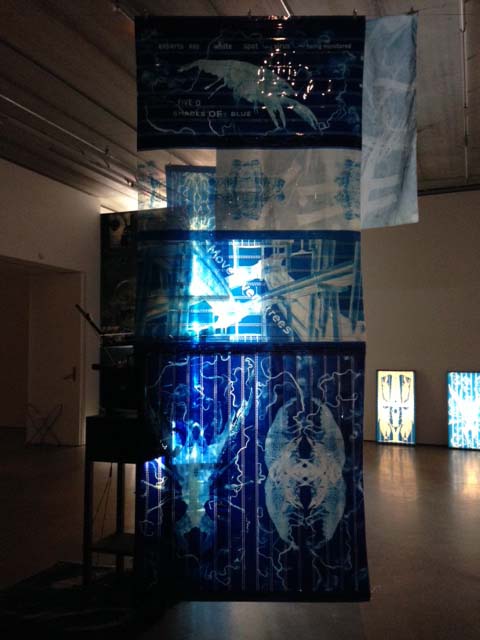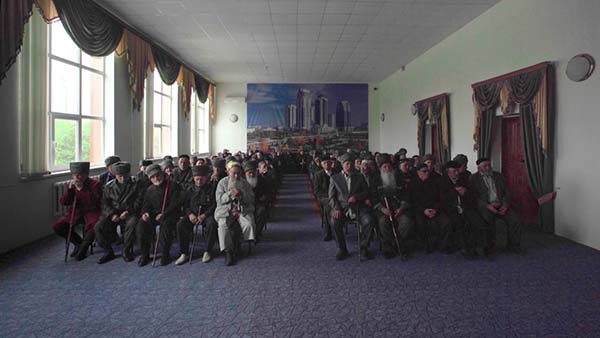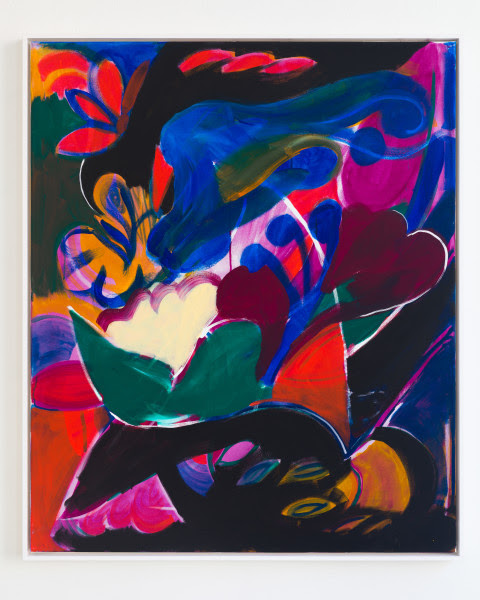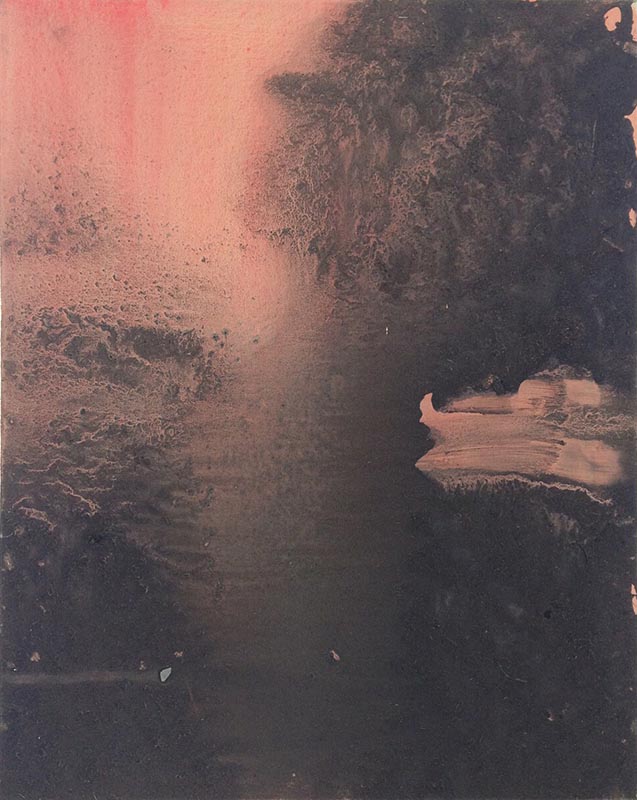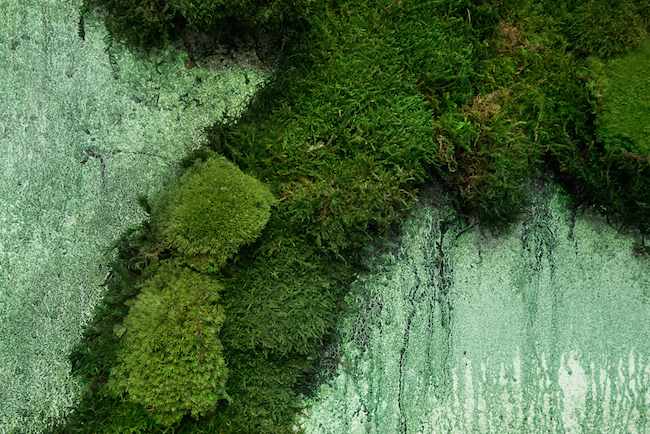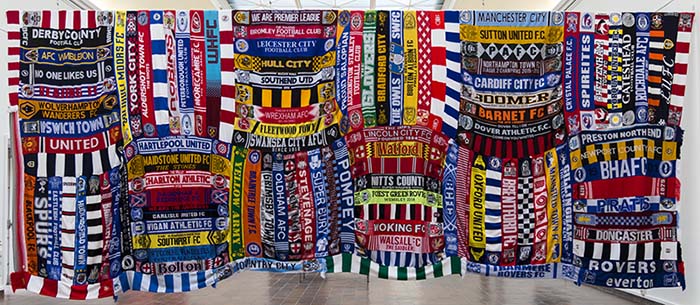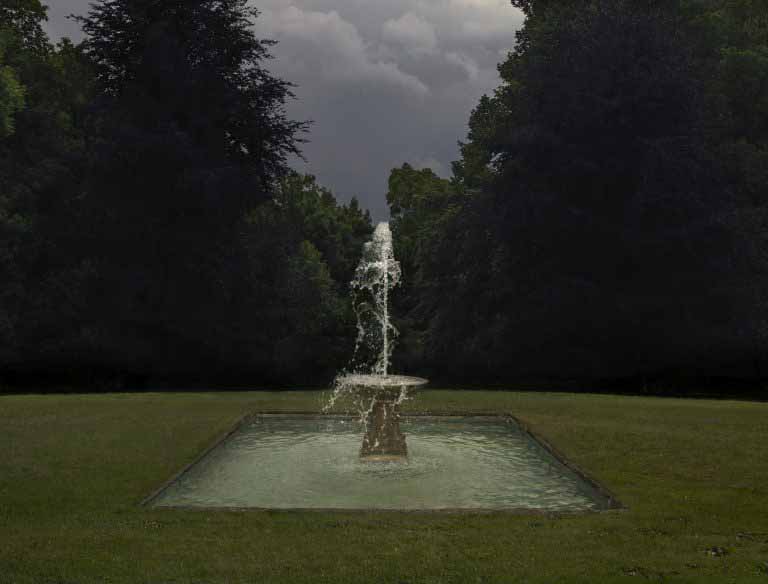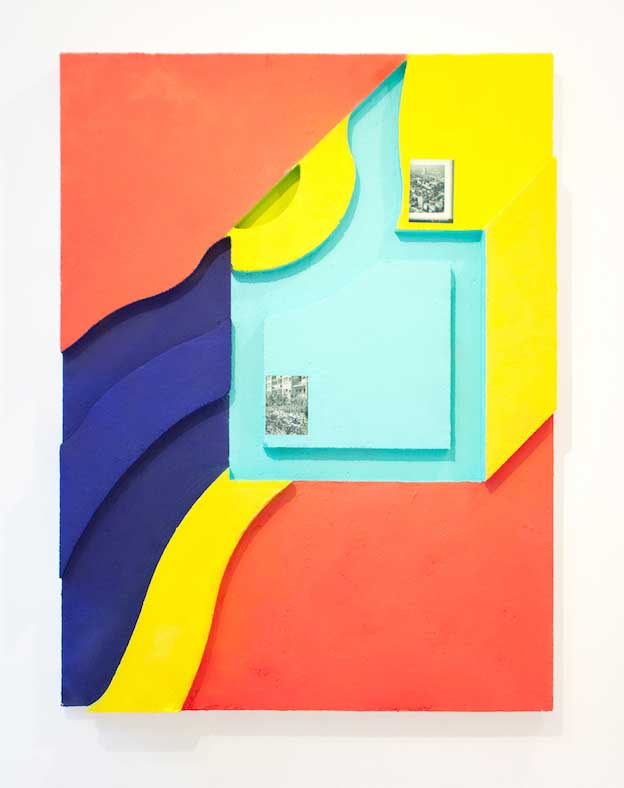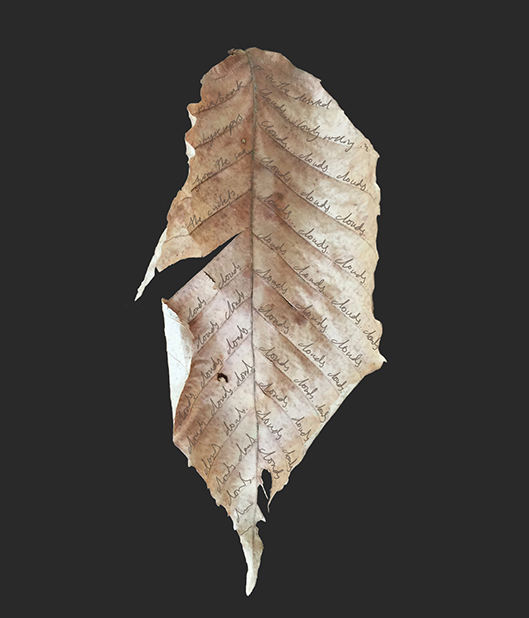 |
| Johannes Heldén, Clouds, 2017. |
As one enters the space temporarily designated for Swedish artist and poet Johannes Heldén’s The Exploding Book at Konstakademin’s in Stockholm, one detects that Heldén is receptive to nuance; each creative gesture confirms his dedication to both text and image, expressed with equitable consideration. Heldén shares excerpts from two intricate book projects, New New Hampshire (2017) and Astroecology (2017), as well as work from the appendix Clouds which consists of six brittle leaves with words scrawled onto them.
Heldén admits that he is interested in exploring the relationship between the book and the exhibition format – and some possible third “something” that might appear when these two are combined. Glass cases display fragments, cross sections and what seems to be field recordings from an imagined future in a non-linear manner, persuading the viewer to intuitively explore the room’s contents and process waves of attraction, aversion or neutral disinterest. Additionally, sooty black and white prints are exhibited as a series (reminiscent of the residue found inside a well-used chimney, a foggy mountainous terrain or bodily scar); yet, these side images do not possess an obvious link to his incorporated books on view but appear to be tangential.
New New Hampshire was originally produced for Momentum in Moss, Norway, 2017, and focuses on futuristic documentation of forty-three somewhat arbitrary artifacts (e.g., cassette player, hoodie, bird’s nest) which were put up for sale online using aliases for approximately three months (February to May) – all of which were advertised as related to an unclear incident which occurred in southern New Hampshire one month prior (January). As the book explains, in February, the Feds collaborated with an investigator to bid on the artifacts following strict guidelines, and winning bids (either overpriced or, perhaps, consistent with the futuristic era in question) were then catalogued and evaluated to a visionary degree.
Astroecology was published as a poetry book in 2016, and has also been presented online and as a multimedia performance at the Royal Dramatic Theatre in Stockholm. The book begins with a quote from the astronomer Carl Sagan: “If you wish to make an apple pie from scratch, you must first invent the universe.” The content is made up of indeterminate photographs, subtle nature images and an eerie repeating birds eye forest view – with accompanying captions and footnotes which illustrate the ineffable and introspective via respect for the senses. These components are weaved together in a literary assemblage, enforcing the artist’s singular perspective through visceral interaction and meditation.
In the center of the room, synthetic birds perch atop book pages – each displaying an oversized font on off-white paper. In the corner of the space, a looped video relays the same “eerie repeating birds eye forest view” as noted in Astroecology; this same book (as hard copy) is displayed multiple times in a row but opened to a different page each instance. Lining one wall are pages displaying askew yet insightful definitions of terms either relevant to the writer-as-artist (e.g., island, wind, jackdaw, fox) or an imagined audience. Heldén’s exhibited definition of ‘illuminated trail’ is: “path lit by electricity. Runs through open terrain, forests, swamps. The intact light bulbs turn on at dusk. Beware of events outside the circles of light.” These extra descriptions make his definitions subjective, and stemming from that: illuminating and sincere.
Heldén’s fragmentary documentation fuses experimental poetics with quasi-factual archiving. He encourages viewers to be patient – to visit and revisit works from ranging perspectives, embracing their imagination and clear new paths for interpretation which are neither conclusive nor dogmatic. His exhibition defends any tendency to veer off the beaten path and engage with less predictable working methods involving text and image. Due to the curiosity of Heldén and others, visual art and book art continue to evolve through hybrid forms.
To see the review in context, click here.
